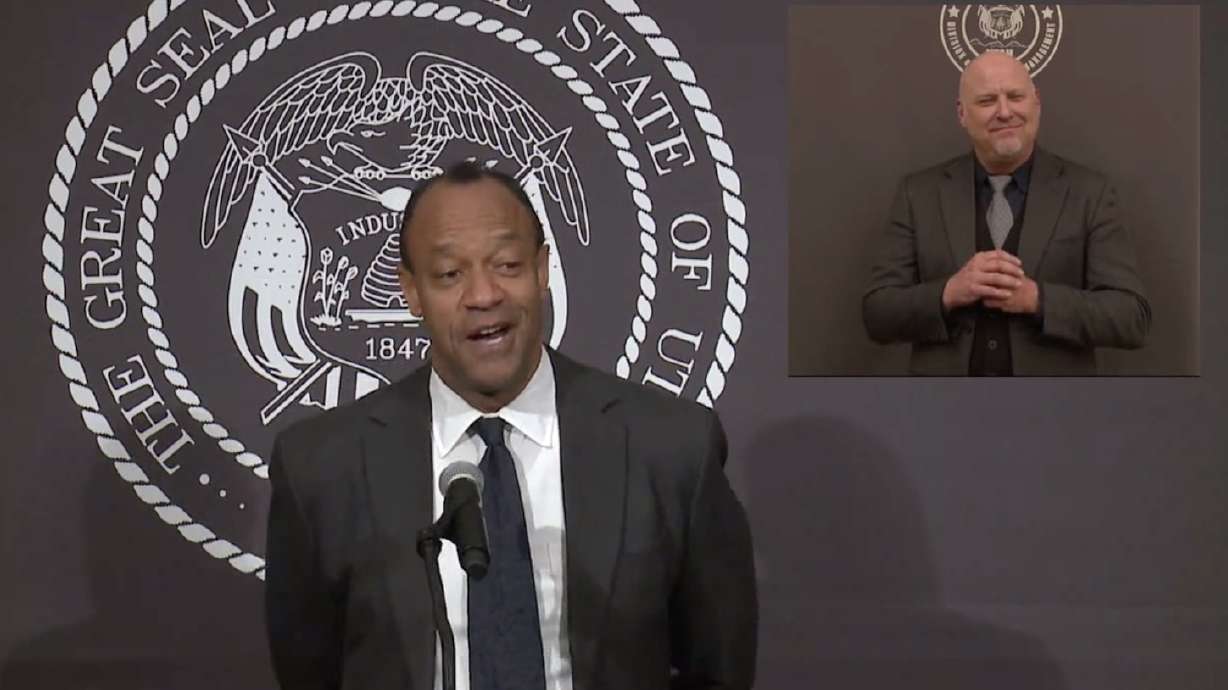Estimated read time: 3-4 minutes
This archived news story is available only for your personal, non-commercial use. Information in the story may be outdated or superseded by additional information. Reading or replaying the story in its archived form does not constitute a republication of the story.
SALT LAKE CITY — As COVID-19 continues to impact minority groups at a high rate, Utah Gov. Gary Herbert announced on Thursday the creation of a multicultural task force that will serve as a subcommittee to the state’s novel coronavirus community task force.
A recent survey by the state’s multicultural division found 10 unique issues faced by these marginalized communities, including technology access, food insecurity, misinformation, housing insecurity, health care access and language/cultural barriers.
The new task force is aimed at resolving these specific barriers, Herbert said.
“While the COVID-19 virus can infect anyone regardless of nationality, income or creed, data is showing a greater impact on minority or low-income communities,” said Byron Russell, co-chair for the Utah Multicultural Commission and the new subcommittee. “This subcommittee has been a symbol to address those disparities with an emphasis on recommendations from (the Utah Division of Multicultural Affairs) survey.”
Data from across the nation has suggested minority groups have had a higher rate of infection for the novel virus and have generally been more at risk for other pandemic-created issues, such as unemployment.
In Chicago, reports show that black populations make up 70% of all COVID-19 deaths and more than 50% of all cases, while only accounting for 32% of the total population.
The new task force, led by Nubia Peña, director of the Utah Division of Multicultural Affairs, requires participation from a variety of leaders. Zee Min Xiao, who is on the Utah Multicultural Commission, will serve alongside Russell as a co-chair for the group.
Government officials, business leaders, faith-based leaders and community advocates will all work together to ensure every sector of these communities is covered, Herbert emphasized.
When asked why the task force wasn’t created sooner, in light of data from other parts of the country showing minorities were disproportionately impacted by the pandemic, Hebert said state officials have been “scrambling to adjust” to quick-changing information about the crisis.
Utah data has also shown a higher rate of infection among the state’s Hispanic/Latino populations as well as pacific islanders, Herbert said.
“We have found by data that we have maybe some more significant challenges with our minority groups,” Herbert said.
Additionally, the Navajo Nation, which includes parts of Utah, Nevada, Arizona and New Mexico, has been hit especially hard by the virus. As of Wednesday, 1,282 residents had tested positive and 49 have died of COVID-19.
On Wednesday, leaders of the nation filed a lawsuit against the federal government asking to be treated fairly when it comes to the disbursement of federal funds.
Herbert said state officials have worked closely with Navajo Nation leaders about the unique needs facing its residents.
“We’re anxious to help them as best we can,” Herbert stressed.
Mobile testing has been provided by the state to the Monument Valley area and public health emergency funding has been issued to tribal programs as well.
Although Utah’s health information has been translated into dozens of languages, Herbert said officials still have concerns it isn’t making its way to these populations who might need it the most.
“We’re concerned that maybe that has not been happening as effectively as it could,” Herbert said.
However, Herbert said some areas of the state's response have been effective in helping vulnerable populations, such as refugees.
The Utah Refugee Education and Training Center has continued to provide services to Utahns and has assisted 1,722 individuals who speak 62 different languages since March 30, Herbert said.
“This pandemic has forced us to consider the impact on marginalized communities and determine the most effective ways to ensure that they are not disproportionately harmed," Peña said.










